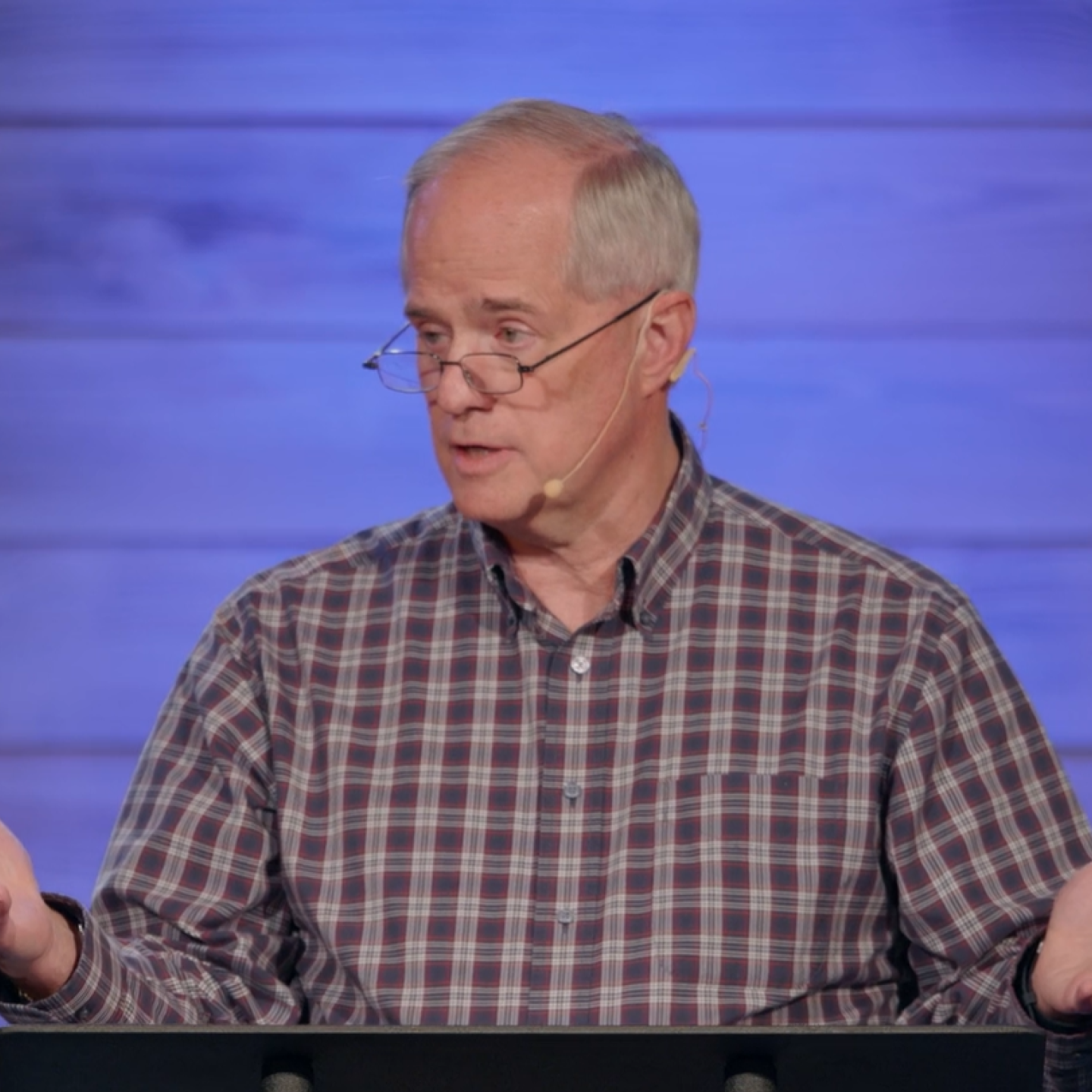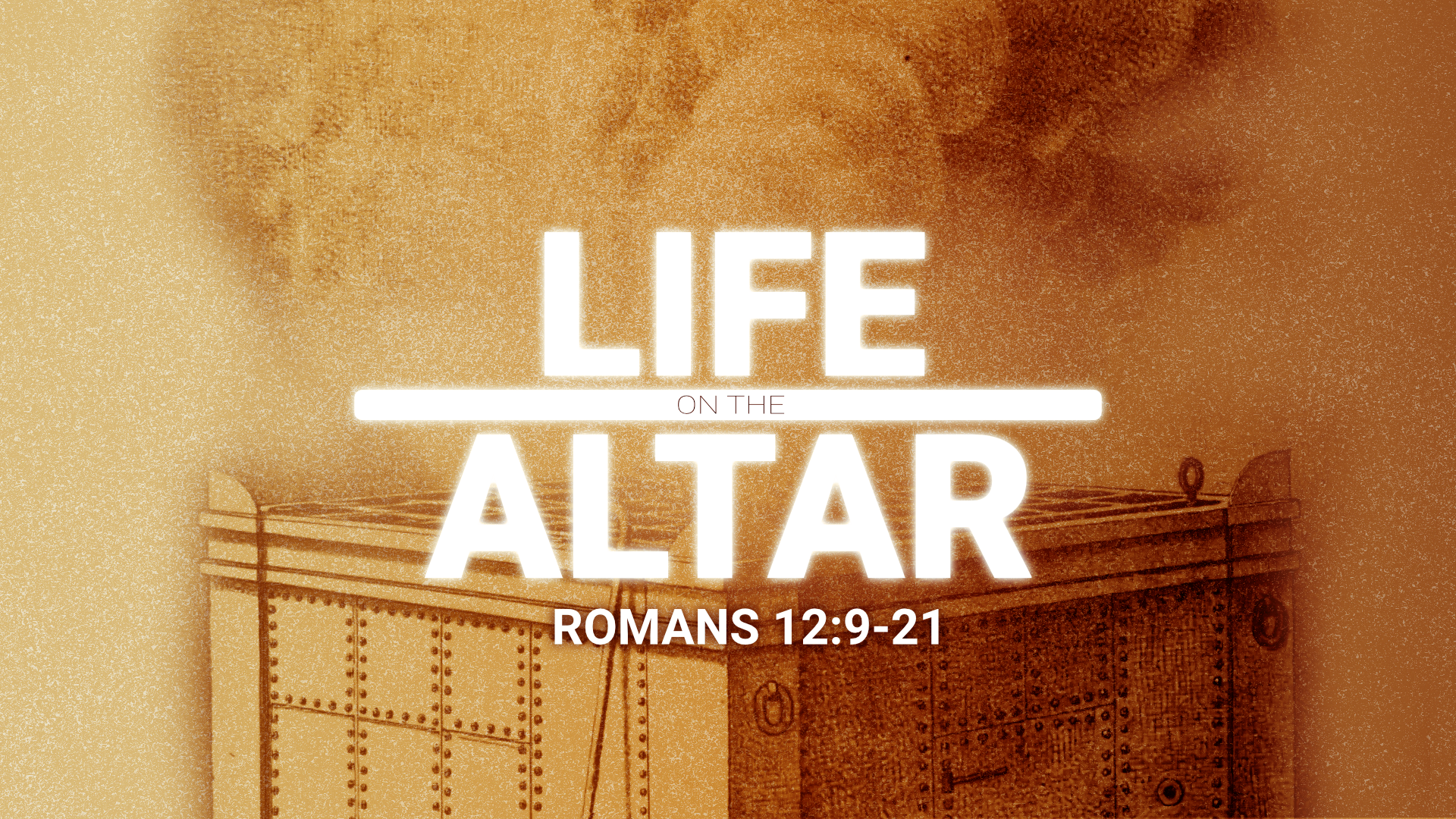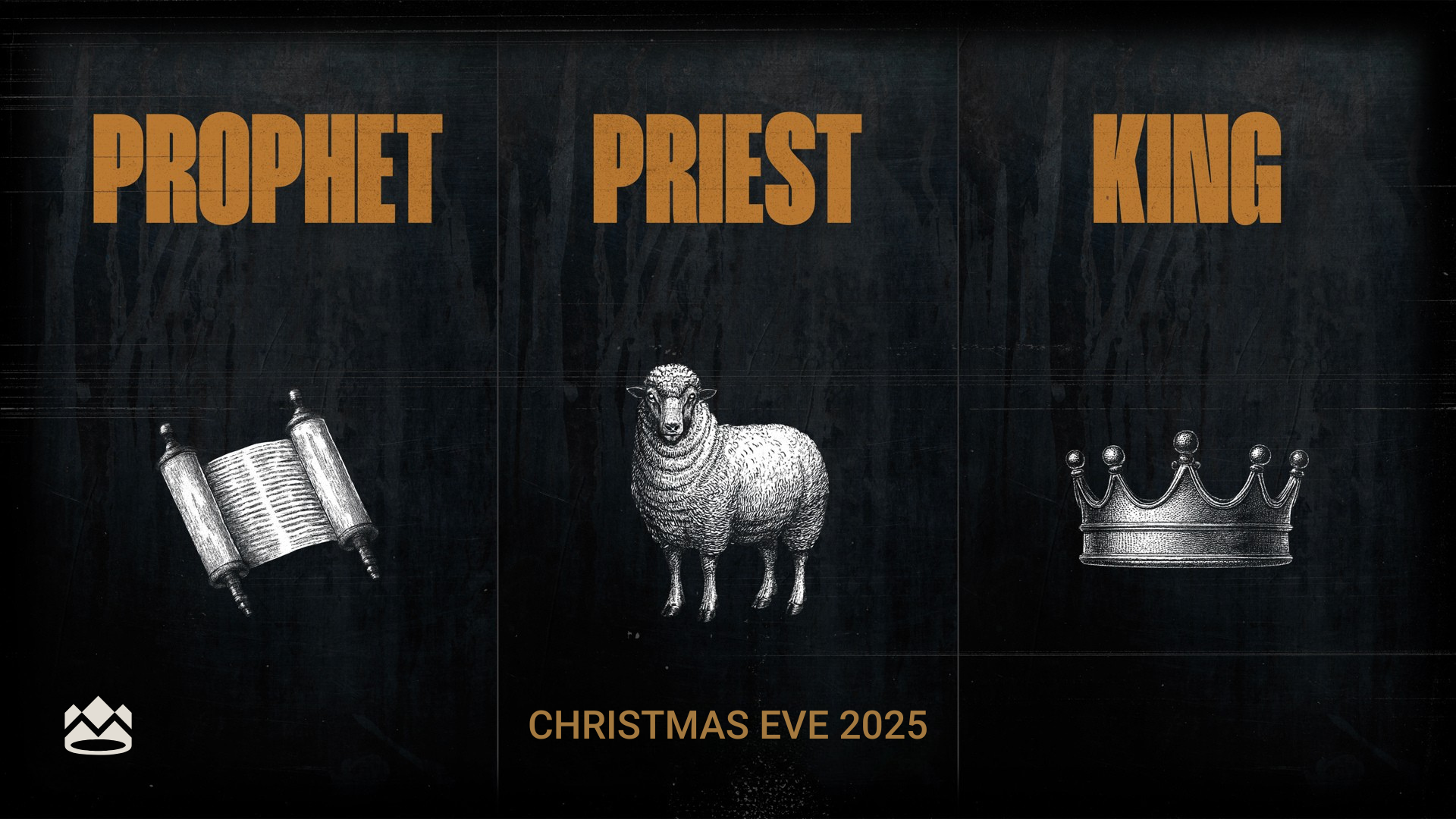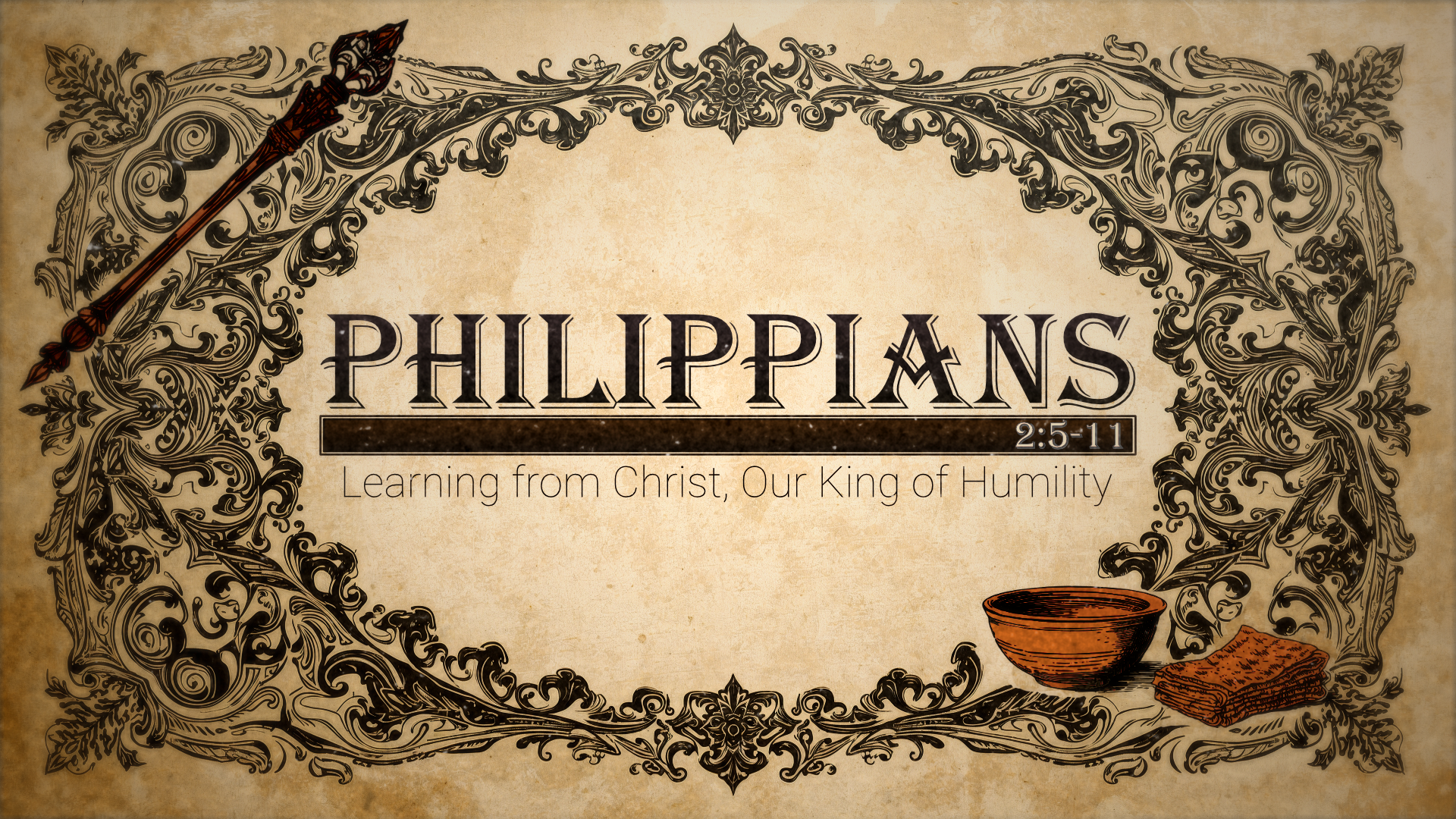John 9:1-41: "Healing Spiritual Blindness: The Path to Faith"
Manuscript
Today, we examine the ninth chapter of the gospel of John. We’re going to cover the entire chapter, so get your running shoes on; we’ll be moving fast. This miracle demonstrates the authority of Jesus over the created order and the Jewish religious leaders, as the Lord heals a man born blind just outside the Temple in Jerusalem.
I invite you to focus with me on the change in the man at the center of the story, the blind man whom Jesus heals. We’ll see him pass through stages of growing understanding, salvation, and spiritual maturity.
“So he went… ”
Let’s begin at verse one.
1 As he passed by, he saw a man blind from birth. 2 And his disciples asked him, “Rabbi, who sinned, this man or his parents, that he was born blind?” 3 Jesus answered, “It was not that this man sinned, or his parents, but that the works of God might be displayed in him. 4 We must work the works of him who sent me while it is day; night is coming, when no one can work. 5 As long as I am in the world, I am the light of the world.” 6 Having said these things, he spit on the ground and made mud with the saliva. Then he anointed the man's eyes with the mud 7 and said to him, “Go, wash in the pool of Siloam” (which means Sent). So he went and washed and came back seeing.
In the first verse, John introduces us to a man. Given his lifetime of blindness, this man, whose name we never learn, had surely spent many years, maybe decades, at the Temple gate, asking alms of those who passed by. Like today, some might easily overlook him, but not Jesus.
The disciples saw in him an occasion for a theological debate, but Jesus saw a man whose healing would bring His Father glory. Jesus quickly redirects the disciples to the glory of God and the urgency of the hour. This event is rather late in Jesus’s public ministry, and the time of His arrival in Jerusalem and sacrifice on the cross is fast approaching. You can hear His intensity as He admonishes the twelve to do the works of God while they can, before “night” comes. While He is here, Jesus is the Light of the world, a truth He illustrates by healing a man born blind, bringing him literally into the light. And Jesus does this in a most unconventional way, by spitting on the ground, making a mud paste, and anointing, or smearing, the man’s eyes with the mud, and sending him to wash in the pool of Siloam. Unlike the leper Naaman in a similar situation in II Kings 5, this blind man quickly follows the instruction and is healed.
As we consider the arc of the blind man’s experience, we begin here. His first stage, if you will, is in verse one: he was a man blind from birth. He was as helpless and hopeless physically as all of us are spiritually. Insensitive to the truth of the gospel, unknowing and uncaring about the Lord and His love and His ways. This is where all of our stories start. But Jesus intervened with the grace and mercy of God.
And being willing to obey, the man moved to the second stage of his newfound spiritual journey, characterized by obedience and healing. Verse 7 is clear: he went and washed and came back seeing. It’s amazing what simply obeying Jesus can do. Understanding His word and doing what He says is as life-changing for us as for the once-blind man. But at this stage, he’s only physically healed, as many others were in Jesus’s earthly ministry. There is no doubt that he is greatly blessed in a physical sense, but the Lord has more in store for this man.
“I am the man.”
What happens next is unexpected.
8 The neighbors and those who had seen him before as a beggar were saying, “Is this not the man who used to sit and beg?” 9 Some said, “It is he.” Others said, “No, but he is like him.” He kept saying, “I am the man.” 10 So they said to him, “Then how were your eyes opened?” 11 He answered, “The man called Jesus made mud and anointed my eyes and said to me, ‘Go to Siloam and wash.’ So I went and washed and received my sight.” 12 They said to him, “Where is he?” He said, “I do not know.”
The people who knew him, or at least knew of him, were shocked by the healing, so much so that they were unsure if it was the same man they all knew. When the formerly blind man says, “It’s me,” they question him: “How were your eyes opened?” They were confused about his identity, but certainly curious about his experience. His answer is straightforward: “The man called Jesus” smeared mud on my eyes, I washed as He said, and I can see. What came next is natural: “Where is he?” But the man simply says, “I do not know.”
This is the third stage in the man’s experience: he’s been healed, and he’s unafraid to tell his story to his friends. In spiritual terms, we might call this “testifying” about what Jesus had done for him. he tells the story about how he was changed from blind to sighted, from hopeless to hopeful, from helpless to healed.
The man bears witness to the power of Jesus Christ from an unimpeachable personal perspective. It’s evident to everyone that he’s been changed, and he attributes the miracle to Jesus. But take note of something we’ll see as the narrative continues: he isn’t able to say anything further about the Lord.
He knows His Name, but not how others can find Him. When people ask to know more about the One who healed him, the man can only reply, “I do not know.” Like many in our world, he's been blessed by God, but still lacks understanding and belief in the Person of Jesus Christ, though he has known his grace and mercy.
“He is a prophet.”
Now, apparently, his neighbors and friends bring the man to the Pharisees for questioning.
13 They brought to the Pharisees the man who had formerly been blind. 14 Now it was a Sabbath day when Jesus made the mud and opened his eyes. 15 So the Pharisees again asked him how he had received his sight. And he said to them, “He put mud on my eyes, and I washed, and I see.” 16 Some of the Pharisees said, “This man is not from God, for he does not keep the Sabbath.” But others said, “How can a man who is a sinner do such signs?” And there was a division among them. 17 So they said again to the blind man, “What do you say about him, since he has opened your eyes?” He said, “He is a prophet.”
The man is entering the fourth stage. Having explained how he was healed to his neighbors and friends, the man now speaks to the Pharisees. There was controversy that the miracle was done on the Sabbath.
Most of the leaders ignored the grace and mercy of God in the healing and concluded that Jesus couldn’t be from God because He violated their traditions surrounding the fourth commandment about keeping the Sabbath. To them, making mud and applying it to the man’s eyes was “kneading,” one of the 39 activities prohibited in section Sabbat 7:2 of the Mishnah, the oral tradition of the Jewish Law.
To the Pharisees, these actions were “work” prohibited in Exodus 20.8-11. Others among the Sanhedrin sided with Jesus. And they asked the man again how he was healed, and while more guarded this time, his response is essentially the same as before. But when directly asked for the man’s understanding of who Jesus is, the healed man boldly declares, “He is a prophet.”
This brave declaration about Jesus reveals a growing spiritual understanding of who Jesus is, that He is not just an itinerant preacher, but a prophet, one who truly speaks for Yahweh God, perhaps even a miracle worker like Elijah. Now, the formerly blind man is gaining both understanding and courage as he gives this title to Jesus.
“He will speak for himself.”
Now comes the only scene in this drama that doesn’t involve the healed man, but there is still a lesson here for us.
18 The Jews did not believe that he had been blind and had received his sight, until they called the parents of the man who had received his sight 19 and asked them, “Is this your son, who you say was born blind? How then does he now see?” 20 His parents answered, “We know that this is our son and that he was born blind. 21 But how he now sees we do not know, nor do we know who opened his eyes. Ask him; he is of age. He will speak for himself.” 22 (His parents said these things because they feared the Jews, for the Jews had already agreed that if anyone should confess Jesus to be Christ, he was to be put out of the synagogue. 23 Therefore his parents said, “He is of age; ask him.”)
To confirm the healed man’s background and story, the Pharisees turn to the man’s parents. As you would expect, they affirm that he is their son and his blindness, but they will say nothing about Jesus or how their son was healed. It’s very unlikely by this point that they knew nothing about it. John’s parenthetical in the ESV tells us the real reason they refused to answer the Pharisees’ questions: they were afraid of being put out of the synagogue. They deferred to their son to reply.
“If this man were not from God, he could do nothing.”
The Pharisees call the healed man back again, and the discussion intensifies.
24 So for the second time they called the man who had been blind and said to him, “Give glory to God. We know that this man is a sinner.” 25 He answered, “Whether he is a sinner I do not know. One thing I do know, that though I was blind, now I see.” 26 They said to him, “What did he do to you? How did he open your eyes?” 27 He answered them, “I have told you already, and you would not listen. Why do you want to hear it again? Do you also want to become his disciples?” 28 And they reviled him, saying, “You are his disciple, but we are disciples of Moses. 29 We know that God has spoken to Moses, but as for this man, we do not know where he comes from.” 30 The man answered, “Why, this is an amazing thing! You do not know where he comes from, and yet he opened my eyes. 31 We know that God does not listen to sinners, but if anyone is a worshiper of God and does his will, God listens to him. 32 Never since the world began has it been heard that anyone opened the eyes of a man born blind. 33 If this man were not from God, he could do nothing.” 34 They answered him, “You were born in utter sin, and would you teach us?” And they cast him out.
Meaning ‘out of the synagogue’. In this second encounter with the Pharisees, the man has much more to say. This time, the religious leaders have their minds made up, and they begin by declaring Jesus Christ a “sinner.”
The man responds with a statement that John Newton later quoted in the hymn “Amazing Grace”: “though I was blind, now I see.” He declines to repeat his answer about how he was healed, perhaps sensing that the Pharisees only wanted to use his testimony to accuse Jesus of breaking the law of the Sabbath. And he boldly asks if they wanted to become Jesus’s disciples.
But by this time, evidently, the man has reflected on what had happened to him, and about Jesus, his healer, and what he knows about the OT Law, and he’s reached some theological conclusions: 1) Jesus is a miracle-working prophet, whether or not the Pharisees know about or agree with him.
2) Jesus couldn’t be a “sinner” as the Pharisees said, or God would not have heard his prayers or given him power to heal.
And 3) Jesus is indeed from God, sent by and empowered by God, for if he wasn’t, as the man says, he could do nothing.” Now he knows that no one can open the eyes of a man born blind apart from God’s sovereign and unstoppable power. The blind man has progressed in his understanding of who Jesus is and what he can do since he was healed.
And because of his spiritual insight, the prideful Pharisees insult him and cast him out of the synagogue. In this fifth stage, the man has grasped some pretty deep truths about Jesus and speaks those truths straight to the Pharisees, with no fear of the consequences.
It’s clear that the man has moved from being healed but knowing nothing about his healer other than his name, to understanding him as a prophet, to refuting the most learned teachers in Israel about the nature of God and truth. This is a remarkable transformation. But the Spirit isn’t done yet. Let’s see what happens next.
“Lord, I believe…”
Jesus seeks out the man after he leaves the Pharisees and engages him again.
35 Jesus heard that they had cast him out, and having found him he said, “Do you believe in the Son of Man?” 36 He answered, “And who is he, sir, that I may believe in him?” 37 Jesus said to him, “You have seen him, and it is he who is speaking to you.” 38 He said, “Lord, I believe…”
The Lord Jesus asks the man, “Do you believe in the Son of Man?” Jesus doesn’t simply heal the man, as wonderful as that was. he goes further and calls him to belief, to a full act of faith in Jesus Himself that brings about spiritual change alongside his physical change.
In one sense, all people are blessed by the Lord, but not all believe. As Jesus says in Matthew 5.45, he makes his sun rise on the evil and on the good. But here, as he does with Martha in John 11, Jesus calls the man to go beyond what he sees to faith in what he cannot see.
”believe” renders Gr. ‘pisteuo,’ to trust or have faith in. Jesus is calling the man to be saved, to be delivered from his sin as well as his blindness. And when he’s sure who Jesus is, the man places his faith and trust in Jesus as the Son of Man, his Messiah and Savior, with the confession, “Lord, I believe”. In this sixth stage, the man moves from blessed to believer.
he worshiped him.
Now the transformation is complete, for verse 38 says,
he worshiped him.
The man steps from faith to action in this seventh stage. he immediately acts upon his newfound faith in Jesus, and he worships him. Every true believer takes this step. We all move from a spiritual understanding and commitment as we place our lives into the hands of Jesus, to an attitude and actions of worship, declaring the greatness and worth of the Lord.
Epilogue
This chapter ends with a sobering pronouncement on the Pharisees.
39 Jesus said, “For judgment I came into this world, that those who do not see may see, and those who see may become blind.” 40 Some of the Pharisees near him heard these things, and said to him, “Are we also blind?” 41 Jesus said to them, “If you were blind, you would have no guilt; but now that you say, ‘We see,’ your guilt remains.
He deepens the spiritual truth enacted in the healing of the blind man. Part of His mission was indeed judgment, and to the Pharisees, the judgment should have been clear, the same judgment that is true for us as well. If you acknowledge your sin and blindness, then repentance and forgiveness are possible. But if anyone persists in refusing to acknowledge their sin and blindness, then their blindness – and guilt – remains.
Application
This passage serves as a mirror for believers to examine themselves, see where we are in our journey toward greater maturity in Christ, as we look again at the stages the man born blind but healed by Jesus experienced in a single day.
First stage: blind physically and spiritually; unable to change on his own
Second stage: obedient, physically healed, blessed.
Third stage: able to describe God’s blessing, but nothing more than that
Fourth stage: able to identify Jesus as a godly man with some authority
Fifth stage: able to understand that Jesus was sent and empowered by God
Sixth stage: exercise God-given faith to believe; he placed his faith in Jesus
Seventh stage: as a new believer, worships the Lord, Jesus Christ
As we consider this, we need to hear the apostle Paul in II Corinthians 13.5, Examine yourselves, to see whether you are in the faith. Test yourselves. Take an honest look at your own life. Everyone goes through the first stage.
Sadly, many remain there. but as people are honest about the existence of God and the blessings God gives, the Spirit works to call people to place their faith in Jesus as Savior and Lord through the power of the Word of God and the faithful witness of Christians, as Romans 10.13-15 says, 13 For “everyone who calls on the name of the Lord will be saved.” 14 How then will they call on him in whom they have not believed? And how are they to believe in him of whom they have never heard? And how are they to hear without someone preaching?
Through God’s word and the witness of Christians, people progress in their understanding of the person and work of Jesus until they reach the point of faith in Him and come to faith as they become Christians. And what do Christians do? They exalt their Savior, the Lord Jesus Christ, in worship.
All of this has been to bring us to this point: where are you? Blind and lost today? Aware of God, but not informed about Him? Interested and willing to listen? Almost ready to trust Jesus? Already a believer and worshipper of the Lord? Examine and consider your life. If you have trusted Christ, wonderful. But if not, will you do that today?
What can we apply from this passage?
Recognize your situation: if you don’t know Jesus today, may God grant you the grace to know and understand that.
Listen for God’s word: seek out a copy of the Bible and Bible teaching.
Consider God’s truth: Apply the truth of the Bible to your situation.
Believe: place your faith and trust in Jesus Christ.
There is a key truth for us at this point: no one comes to Christ by simply understanding the intellectual truths of the Bible, but by trusting Christ for all of life. We’re saved by grace through faith, not just by learning more about the Bible. The Pharisees knew God’s word, but they did not believe in Jesus Christ. In John 8.24, Jesus says, 24 unless you believe that I am he you will die in your sins.” To know the truth about Jesus but not receive Him by faith places a person on a path to dying in their sins and eternal condemnation. Instead, let this be the day you place your faith in Jesus.
If you will do that, then along with the man born blind, you can say, “I once was lost but now I’m found, was blind but now I see.”





